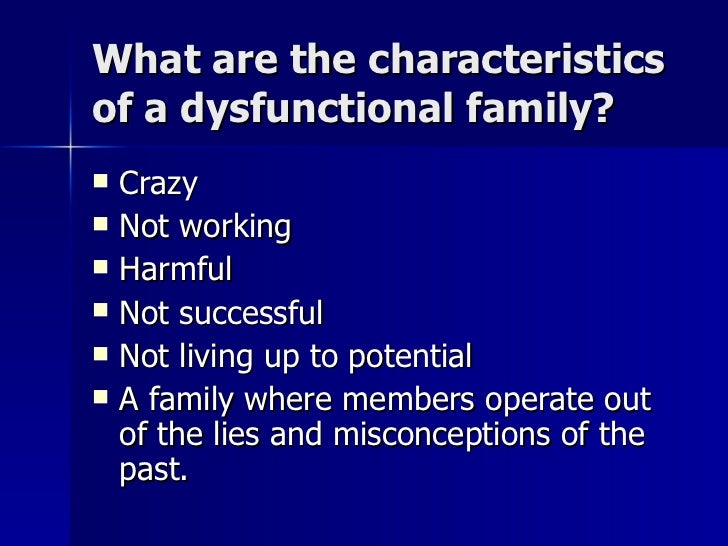
Dysfunctional Families
18 Ekim 2015 Pazar
1) Dysfunctional Families
Understanding Dysfunctional Relationship Patterns in Your Family
Many people hope that once they leave home, they will leave their family and childhood problems behind. However, many find that they experience similar problems, as well as similar feelings and relationship patterns, long after they have left the family environment. Ideally, children grow up in family environments which help them feel worthwhile and valuable. They learn that their feelings and needs are important and can be expressed. Children growing up in such supportive environments are likely to form healthy, open relationships in adulthood. However, families may fail to provide for many of their children’s emotional and physical needs. In addition, the families’ communication patterns may severely limit the child’s expressions of feelings and needs. Children growing up in such families are likely to develop low self esteem and feel that their needs are not important or perhaps should not be taken seriously by others. As a result, they may form unsatisfying relationships as adults.
Types Of Dysfunctional Families
The following are some examples of patterns that frequently occur in dysfunctional families.
- One or both parents have addictions or compulsions (e.g., drugs, alcohol, promiscuity, gambling, overworking, and/or overeating) that have strong influences on family members.
- One or both parents use the threat or application of physical violence as the primary means of control. Children may have to witness violence, may be forced to participate in punishing siblings, or may live in fear of explosive outbursts.
- One or both parents exploit the children and treat them as possessions whose primary purpose is to respond to the physical and/or emotional needs of adults (e.g., protecting a parent or cheering up one who is depressed).
- One or both parents are unable to provide, or threaten to withdraw, financial or basic physical care for their children. Similarly, one or both parents fail to provide their children with adequate emotional support.
- One or both parents exert a strong authoritarian control over the children. Often these families rigidly adhere to a particular belief (religious, political, financial, personal). Compliance with role expectations and with rules is expected without any flexibility.
3)Effects on children
Children of dysfunctional families, either at the time, or as they grow older, may also:[12]
- Lack the ability to be playful, or childlike, and may "grow up too fast"; conversely they may grow up too slowly, or be in a mixed mode (e.g. well-behaved, but unable to care for themselves)
- Have moderate to severe mental health issues, including possible depression, anxiety,[17] and suicidal thoughts
- Become addicted to smoking, alcohol, and/or drugs, especially if parents or friends have done the same
- Bully or harass others, or be an easy victim thereof (possibly taking a dual role in different settings)
- Be in denial regarding the severity of the family's situation
- Have mixed feelings of love–hate towards certain family members
- Become a sex offender, possibly including pedophilia.[18]
- Have difficulty forming healthy relationships within their peer group (usually due to shyness or a personality disorder)
- Spend an inordinate amount of time alone watching television, playing video games, surfing the Internet, listening to music, and other activities which lack in-person social interaction
- Feel angry, anxious, depressed, isolated from others, or unlovable
- Have a speech disorder (related to emotional abuse) [19]
- Distrust others or even have paranoia
- Become a juvenile delinquent and turn to a life of crime (with or without dropping out of school), and possibly become a gang member as well
- Struggle academically at school or academic performance declines unexpectedly
- Have low self-esteem or a poor self image with difficulty expressing emotions
- Rebel against parental authority, or conversely, uphold their family's values in the face of peer pressure, or even try to take an impossible "middle ground" that pleases no one
- Think only of themselves to make up the difference of their childhoods (as they are still learning the balance of self-love)
- Have little self-discipline when parents are not around, such as compulsive spending, procrastinating too close to deadlines, etc. (unfamiliar, inchoate, and seemingly lax or avoidable real-world consequences vs. known, concrete, and rigidly imposed parental consequences)
Kaydol:
Yorumlar (Atom)


